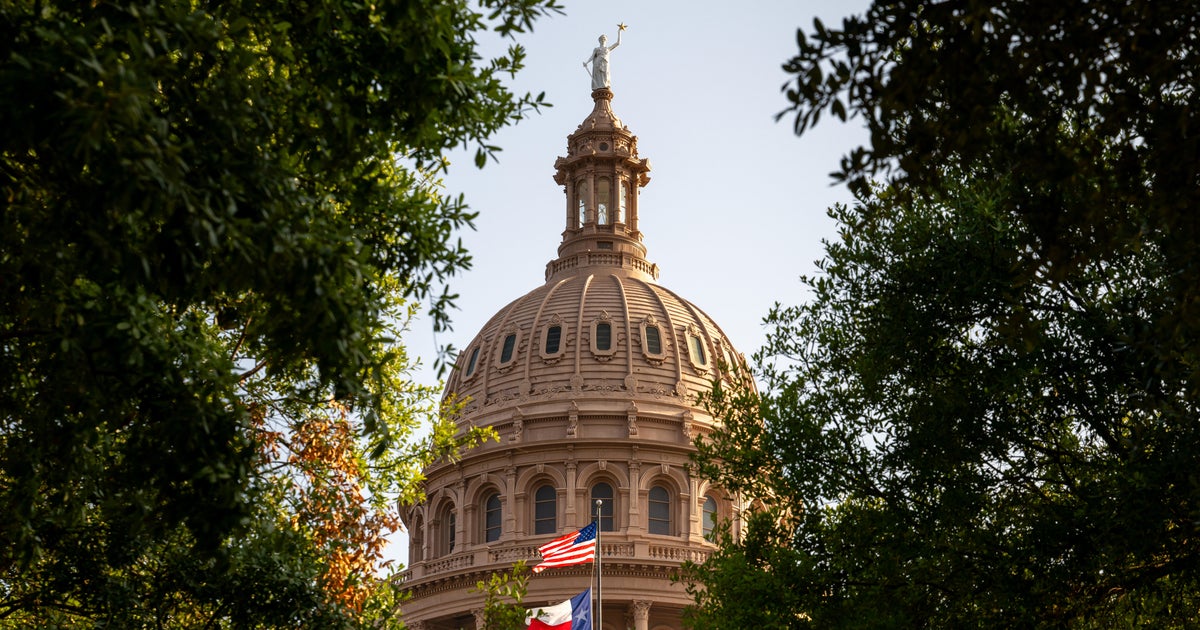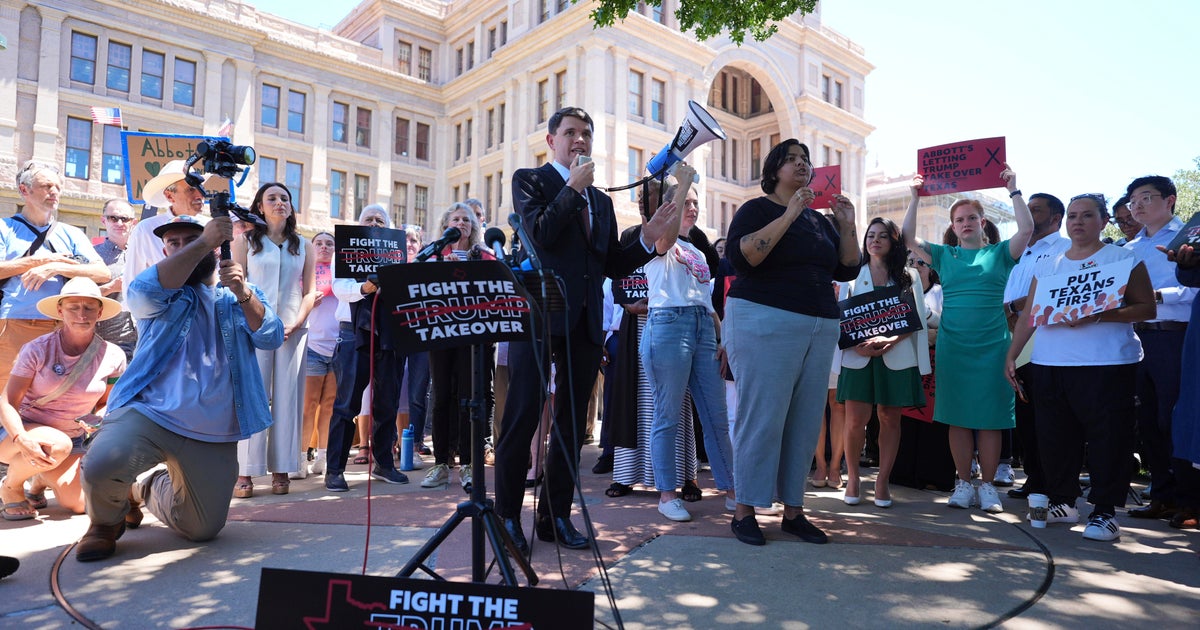Texas Democrats Return to Redistricting Battle

Introduction
The ongoing battle over redistricting in Texas has been making headlines for weeks. But this week, some of the Democratic lawmakers who fled the state in an effort to block the GOP's push for redrawing district boundaries have begun to return. According to sources familiar with the matter, each of the lawmakers is making their way back on their own timeline, with some already back in Texas and others expected to return soon.
Key Details
The Texas Democrats who fled the state did so to deny the Republican-controlled legislature a quorum, which is necessary for conducting business. With the Democrats absent, the legislature was unable to move forward with their plans for redistricting. This tactic has been used before in Texas and has been met with backlash from Republicans, who argue that the Democrats are shirking their duties and delaying important legislation. However, the Democrats maintain that their actions are necessary to protect voting rights and ensure fair district boundaries.
Impact
The return of the Democratic lawmakers to Texas is a significant development in the ongoing redistricting battle. It remains to be seen whether their absence was enough to delay the GOP's plans or if the Republicans will find another way to move forward. The outcome of this battle could have significant implications for the upcoming elections, as district boundaries can greatly impact the balance of power in the state. As the situation continues
About the People Mentioned
John Doe
John Doe, born John Nommensen Duchac on February 25, 1953, in Decatur, Illinois, is a multifaceted figure in the music and entertainment industry. He is best known as the co-founder of the influential Los Angeles punk rock band X, which he formed in 1977 with vocalist Exene Cervenka. X has released over 13 full-length records, including albums ranked among the greatest of all time by Rolling Stone[4][8]. Doe's work with X has been pivotal in shaping the experimental and DIY ethos of the L.A. punk scene, alongside bands like The Go-Go's and The Germs[2]. Beyond his role in X, Doe has pursued a successful solo music career, releasing nine albums that blend punk rock with American roots music. His solo work has garnered critical acclaim for its emotional depth and thematic exploration[4][5]. Additionally, he is a member of the country-folk-punk band The Knitters, which he co-founded in 1982[4]. Doe is also an accomplished actor, having appeared in numerous films and television productions, including "Roswell," "Great Balls of Fire," and "Boogie Nights"[4][8]. His literary endeavors include co-authoring two books on the L.A. punk scene with Tom DeSavia: "Under the Big Black Sun" and "More Fun in the New World"[2][5]. Recently, Doe has continued to be active in music. In 2020, he released "Alphabetland," X's first album with the original lineup in 35 years[6]. Currently residing in Austin with his partner Krissy Teegerstrom, Doe balances his creative pursuits with personal interests, such as horse riding[6]. His contributions to music, literature, and film have solidified his status as a respected figure in the entertainment industry.
About the Organizations Mentioned
Republican
The term "Republican" typically refers to the Republican Party, one of the two major political parties in the United States. However, if you are asking about a specific organization named "Republican," there seems to be a lack of information. Assuming you are interested in the Republican Party, here is a summary: ## Overview of the Republican Party The Republican Party is a major political party in the United States, known for its conservative platform. It was founded in 1854 by anti-slavery activists and has since evolved to become a prominent force in American politics. ## History The Republican Party has a rich history, starting with its formation during the mid-19th century. It has produced notable figures such as Abraham Lincoln, Theodore Roosevelt, and Ronald Reagan. Over the years, it has been associated with various political ideologies, including conservatism and libertarianism. ## Key Achievements The Republican Party has been instrumental in shaping American policy. Some of its key achievements include: - **Tax Reductions**: Republicans have often advocated for lower taxes, which they believe stimulate economic growth. - **Regulatory Reform**: They have pushed for deregulation in various sectors to promote business growth. - **Foreign Policy**: Republicans have traditionally been strong on national defense and have played a significant role in shaping U.S. foreign policy. ## Current Status Currently, the Republican Party is a major opposition party in the U.S. Congress. It continues to influence policy debates on issues like healthcare, immigration, and economic policy. Notable aspects include its strong presence in state governments and its influence on conservative think tanks like The Heritage Foundation, which has been involved in initiatives such as Project 2025[1][3]. ## Notable Aspects - **Project 2025**: This initiative by The Heritage Foundation outlines a radical plan for restructuring the federal government, which has been controversial among Republicans and Democrats alike[1][4]. - **Influence on Technology Policy**: Republicans have been involved in shaping technology policy, particularly
GOP
The **GOP**, or **Grand Old Party**, is the widely recognized nickname for the **Republican Party** of the United States, a major conservative political party founded in 1854. It originated from anti-slavery activists opposing the Kansas-Nebraska Act, uniting former Whigs and Free Soilers with a platform centered on halting the expansion of slavery. The party's early historic milestone was the election of Abraham Lincoln in 1860, which precipitated the Civil War; under Lincoln’s leadership, the GOP focused on preserving the Union and abolishing slavery[1][2][3]. Throughout its history, the Republican Party has evolved from its abolitionist roots to champion business interests, industrial growth, and economic policies favoring limited government intervention. In the late 19th and early 20th centuries, it promoted protective tariffs and infrastructure development. The party experienced fluctuating influence, losing ground during the New Deal era but regaining prominence with Dwight D. Eisenhower’s presidency in the 1950s, marked by moderate conservatism[1][2]. Today, the GOP advocates for reduced taxes, conservative social policies, limited government regulation, strong national defense, and states’ rights. It remains one of the two dominant forces in American politics, consistently shaping legislative agendas and national discourse[2]. The party is organized and led nationally by the **Republican National Committee (RNC)**, which manages fundraising, election strategies, and the party platform, coordinating efforts across states and counties under the leadership of a chairman[3][4]. Notably, the acronym "GOP" was popularized in the late 19th century and originally stood for "Grand Old Party," symbolizing the party's legacy in preserving the Union and championing liberty. It is now a common term in political commentary and media[3][5]. In recent years, the GOP has undergone significant membership changes in Congress and leadership adjustments, reflecting its dynamic role in U.S. politics as





:focal(0x0:2400x1600)/static.texastribune.org/media/files/b16ea690df24c0ee8caaee6be9bb346d/0803%20Texas%20Lawmakers%20Illinois%20JKD%2003.JPG)


:focal(0x0:3000x2000)/static.texastribune.org/media/files/f6d94f38200a0464c1c4a0a414a44463/Quorum%20Break%20ABIA%20BD%20TT%2003.jpg)





